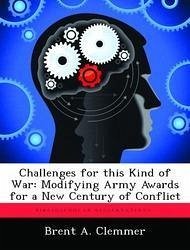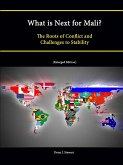The United States Army continues to execute counterinsurgency operations in support of the Global War on Terror in Afghanistan. However, inculcating a counterinsurgency ethos into the Army continues to be a challenge. The Army's reward system, which drives individual motivation and reflects corporate values, plays a much-overlooked role in this endeavor. In the Army, as with most organizations, pay, promotion and awards form a tripod of extrinsic motivation, and represent tools that the institution can use to reward or reinforce specific behavior. Today and in the future, pay and promotion have a limited effect to promote and reinforce the development of a counterinsurgency ethos in the Army. The reasons are clear. The Army's award system, developed primarily during the World Wars, is static and rewards combat actions more common to high intensity operations rather than counterinsurgency (COIN). Furthermore, the 'Pyramid of Honor,' which focuses on valorous acts, is deeply ingrained in Army culture. Recently, the Army has spent significant energy creating and revising many facets of doctrine, including the creation of a counterinsurgency field manual. COIN doctrine calls for actions, which limit incentives in the award system. This monograph explains the paradox that results. New Army doctrine directs soldiers to work by, with, and through a host nation. Yet, in Afghanistan, the Army primarily rewards its soldiers for engaging and killing the enemy. This incongruity in Afghanistan produced the wrong kind of incentives and thus, unintended consequences that led to an endorsement for lethal methods as the default. This particular study makes an analysis of the specifics in Afghanistan to understand what the award system needs to consider as additional criteria for incentives. Better understanding of what criteria promotes this kind of action are paramount for success.
Hinweis: Dieser Artikel kann nur an eine deutsche Lieferadresse ausgeliefert werden.
Hinweis: Dieser Artikel kann nur an eine deutsche Lieferadresse ausgeliefert werden.








